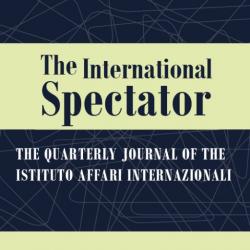The New Saudi Leadership and Its Impact on Regional Policy

The radical transformation of the Saudi Kingdom underway since early 2015 raises the core issue of Crown Prince Mohammad Bin Salman’s legitimacy. By balancing his defiance of the royal family through the popular support of Saudi youth, the Crown Prince seeks to consolidate his power, which reverberates in substantial changes in domestic governance and foreign policies. The assertive regional policy under King Salman and his heir also revealed tensions arising from their divergent world visions due to a generational gap. This has resulted in an incoherent and downgraded Saudi leadership in the Middle East and North Africa (MENA) region. This illustrates how domestic decision-making affects actors’ choices in foreign policy, contributing to the theoretical debate that integrates foreign policy analysis into International Relations (IR) theory.
Keywords: domestic-foreign policy nexus; dual leadership; populism; generational rift; MENA stability
-
Details
The International Spectator, Vol. 56, No. 4, December 2021, p. 49-65 -
Issue
56/4 -
ISBN/ISSN/DOI:
10.1080/03932729.2021.1987033


